Life starts all over again when it gets crisp in the fall.
F. Scott Fitzgerald
. . . And Books on the Table is starting all over again, with a brand new design that’s a little cleaner and easier on the eyes. Over the past five years, the content has changed as well. Good-bye, in-depth book reviews; hello, collections of short reviews. I’m not as concerned with reviewing brand-new books as I used to be. Just because a book has been out for a few months — or even a year — doesn’t mean it’s yesterday’s news. The frequency of posts has slowed down as well. Once a month or so seems about right. I have a long list of post ideas, and I also have a huge pile of unread books. Most of the time, I choose to pick up a book rather than write a blog post. Here are a dozen terrific books I read recently when I could have been doing other things:
Nonfiction
A book for book lovers:
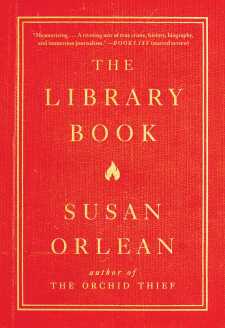 The Library Book by Susan Orlean
The Library Book by Susan Orlean
A library is a good place to soften solitude; a place where you feel part of a conversation that has gone on for hundreds and hundreds of years even when you’re all alone. The library is a whispering post. You don’t need to take a book off a shelf to know there is a voice inside that is waiting to speak to you, and behind that was someone who truly believed that if he or she spoke, someone would listen.
The Library Book is one of my favorites of 2018. At its heart is the mysterious fire at the Los Angeles Public Library in 1986 that destroyed nearly a million books, but it covers a lot of territory — the story of the accused arsonist, the history of libraries, the value of the printed page, the dedication of librarians to their work. Susan Orlean brilliantly weaves all these strands, and more, together to create a fascinating narrative that celebrates public libraries. In an interview with Publishers Weekly, she said, “There’s plenty to feel joyful about: that we still write books and read books and preserve books in places like libraries where they’re available for everyone to share.”
A must-read for parents of young children, and also anyone who’s interested in the direction of American society:
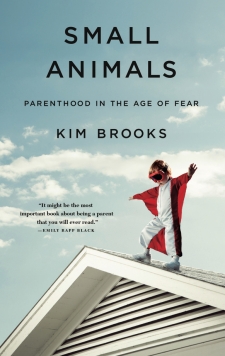 Small Animals: Parenthood in the Age of Fear by Kim Brooks
Small Animals: Parenthood in the Age of Fear by Kim Brooks
And so children do not go to the store to buy bread and milk for their parents. They do not take long walks through the woods, or ride bikes along paths, or build secret tree houses or forts while we are inside working or cooking or talking to other adults or leading our lives. They are no longer afforded, as Mona Simpson writes, “the luxury of being unnoticed, of being left alone.”
After her arrest for leaving her four-year-old in a car in a suburban parking lot for a few minutes, novelist and essayist Kim Brooks began to wonder about the origins of our culture’s misplaced and often superstitious fears. When, and why, did we become so anxious to protect our children from every possible form of danger, no matter how statistically unlikely it is to occur, and why are we so quick to blame parents — particularly mothers — when something goes wrong? This engaging and thought-provoking book — part memoir, part sociological study — will inspire lively discussion.
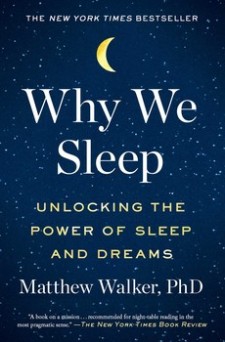 A science book for nonscientists (or anyone who’s ever dreamed of a good night’s sleep):
A science book for nonscientists (or anyone who’s ever dreamed of a good night’s sleep):
Why We Sleep: Unlocking the Power of Sleep and Dreams by Matthew Walker, Ph.D.
The shorter your sleep, the shorter your life. The leading causes of disease and death in developed nations—diseases that are crippling health-care systems, such as heart disease, obesity, dementia, diabetes, and cancer—all have recognized causal links to a lack of sleep.
Neuroscientist Matthew Walker (director of the Sleep Lab at UC Berkeley) presents, in an entertaining and conversational way, all the evidence that adequate sleep, especially the REM sleep in which we dream, is essential to good health. He also outlines the methods to ensure a good night’s sleep. So why did I stay up too late reading this book? Because, since childhood, I’ve had the sleep-depriving habit of reading just one more chapter of books that capture my attention. He doesn’t mind if readers use his book as a sleep aid: “Please, feel free to ebb and flow into and out of consciousness during this entire book. I will take absolutely no offense. On the contrary, I would be delighted.”
A book that helps readers understand the causes of the opioid crisis, along with possible solutions:
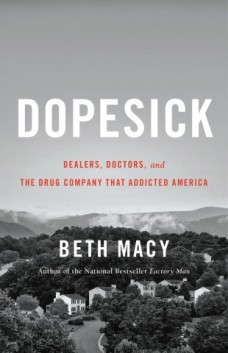 Dopesick: Dealers, Doctors, and the Drug Company That Addicted America by Beth Macy
Dopesick: Dealers, Doctors, and the Drug Company That Addicted America by Beth Macy
America’s approach to its opioid problem is to rely on Battle of Dunkirk strategies—leaving the fight to well-meaning citizens, in their fishing vessels and private boats—when what’s really needed to win the war is a full-on Normandy Invasion.
I’ve read other books that trace the roots of the opioid epidemic (Dreamland by Sam Quinones, American Pain by John Temple), but journalist Beth Macy’s harrowing narrative not only lays bare the corporate greed that has contributed to human suffering, it brings us face-to-face with the real people affected by this complicated crisis — addicts and their friends and families. As fast-paced and readable as any thriller, this book will outrage you.
Two excellent memoirs — one by an author at the end of his adult life, one by an author at the beginning of hers:
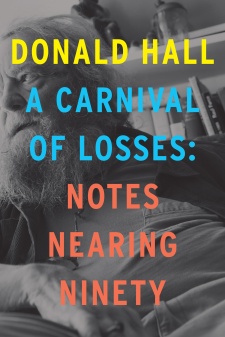 Carnival of Losses: Notes Nearing Ninety by Donald Hall
Carnival of Losses: Notes Nearing Ninety by Donald Hall
When I was young, my language wore coats and shirts and trousers, neckties, bespoke shirts. In my lifetime as a writer I have cast off layer after layer of clothing in pursuit of nudity. I held nothing back except transitions that might once have elaborated notes into an essay. . . . As I write toward my nineties I shed my skin. I tell short anecdotes, I hazard an opinion, speculate, assume, and remember. Why should a nonagenarian hold anything back?
Poet Donald Hall died at age 89, just weeks before his last book, a series of short essays, was published. It’s a lovely parting gift from a beloved writer. In an essay called “He Holds Up a Lantern For the Rest of Us” , Ann Patchett writes: “The book is about who Don was and how he saw the world. I’m here to tell you there is nothing better. Every superfluous word is stripped away and what is left is the pure force of life.”
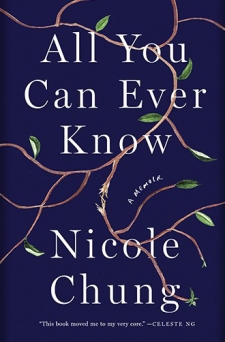 All You Can Ever Know by Nicole Chung
All You Can Ever Know by Nicole Chung
By the time I was five or six years old, I had heard the tale of my loving, selfless birth parents so many times I could recite it myself. I collected every fact I could, hoarding the sparse and faded glimpses into my past like bright, favorite toys. This may be all you can ever know, I was told.
When she was expecting her first child, Nicole Chung decided to search for her birth family. What she learned shocked her and went far beyond the medical history she had hoped to find. Chung not only tells a riveting and suspenseful story, she explores transracial adoption and biological heritage.
Fiction
Two slim books with lots of “meat” for discussion:
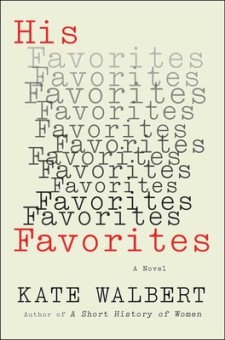 His Favorites by Kate Walbert
His Favorites by Kate Walbert
This is not a story I’ve told before. No one would believe me. I mean, really believe me. The would get that look and nod. They would ask certain questions that suggested I was somehow culpable or that I was making most of it up out of nothing — just girlish fantasies and daydreams.
His Favorites is a perfect addition to Short Novels Your Book Club Will Actually Finish — only 160 pages and packed with material for discussion. In the aftermath of tragedy, a teenage girl goes to boarding school and encounters a charming but predatory young teacher.
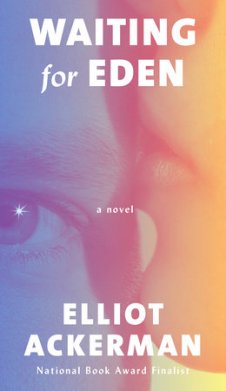 Waiting for Eden by Elliot Ackerman
Waiting for Eden by Elliot Ackerman
My friend was, they’d been told, the most wounded man from both the wars. As advanced as medicine had become, that likely made him the most wounded man in the history of war, and they’d just kept him alive from one side of the world to the other.
Decorated veteran and National Book Award nominee Elliot Ackerman (Dark at the Crossing) has written a powerful modern-day version of Johnny Got His Gun that will break your heart. After Eden is gravely injured in Iraq, his best friend, killed in the same blast, narrates the story of Eden and his wife, Mary: “Ever since then I’ve been around too, just on that other side, seeing all there is, and waiting.”
For fans of Pat Conroy’s Southern fiction (The Prince of Tides, South of Broad) and/or Barbara Kingsolver’s eco-fiction (Prodigal Summer, Flight Behavior):
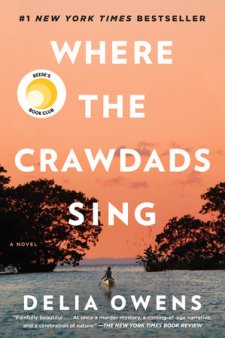 Where the Crawdads Sing by Delia Owens
Where the Crawdads Sing by Delia Owens
I wasn’t aware that words could hold so much. I didn’t know that a sentence could be so full.
I adored this novel about a young girl, abandoned by her family, who is forced to raise herself in a remote North Carolina marsh. First-time novelist Delia Owens is a wildlife scientist, and her love of the natural world shows in this beautiful and satisfying book, which combines both a coming-of-age story and a murder mystery.
A quiet, character-driven novel about family dynamics:
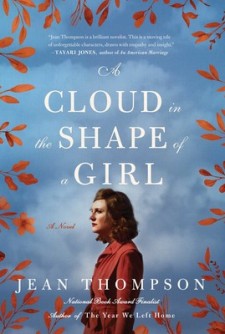 A Cloud in the Shape of a Girl by Jean Thompson
A Cloud in the Shape of a Girl by Jean Thompson
And yet history shifted underneath your feet . . . The present was a dizzy perch that every so often began to spin and slide . . . You held onto your life with both hands, you told yourself to pay attention to this moment, the here and now. But one minute passed into the next, and at some point you looked back and everything was over and people called it history.
Starting during the Second World War II and moving through succeeding generations, A Cloud in the Shape of a Girl examines the lives of three Midwestern women — grandmother, daughter, and granddaughter — as they struggle with career choices and imperfect marriages, Jean Thompson is one of many underappreciated writers who is a master at creating complex and interesting characters.
For readers who like Jodi Picoult but want something less formulaic:
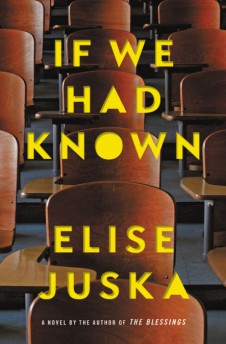 If We Had Known by Elise Juska
If We Had Known by Elise Juska
After twenty-eight years, Maggie could rely on the arc of a semester: the way, in the beginning, the freshmen would be tentative, wary, fifteen versions on insecurity — the glibness, the shyness, the overwrought machismo — was there any teenage behavior without insecurity at the root? — but as the weeks passed, they gained confidence in their work.
English professor Maggie Daley is shocked to learn that a former student was responsible for a shooting at a nearby shopping mall. Meanwhile, her college-bound daughter tries to protect her mother from dangerous secrets. After Maggie makes an error in judgment, she’s forced to examine her role in the events around her. This a thought-provoking, well-paced novel — perfect for book clubs. (Not to be confused with You Should Have Known by Jean Hanff Korelitz, another great character-oriented page-turner.)
Great historical fiction:
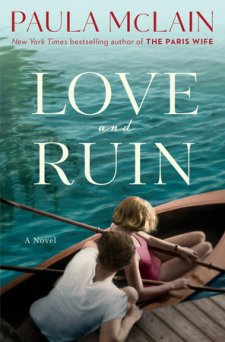 Love and Ruin by Paula McLain
Love and Ruin by Paula McLain
Real writing, I was beginning to realize, was more like laying bricks than waiting for lightning to strike. It was painstaking. It was manual labor. And sometimes, sometimes if you kept putting the bricks down and let your hands just go on bleeding, and didn’t look up and didn’t stop for anything, the lightning came.
If you enjoyed The Paris Wife, about Ernest Hemingway’s first wife, you will love Love and Ruin, about his extraordinary third wife, reporter and novelist Martha Gellhorn. The pair fell in love while covering the Spanish Civil War and were married for four tumultuous years. Gellhorn, who was the only woman to land on D-Day (defying Hemingway’s wishes) was to become one of the most renowned journalists of the twentieth century, covering every major war and publishing many books. She emerges in this captivating novel as a strong, independent woman ahead of her time.
There are so many good books coming out this fall — I’m especially excited by Barbara Kingsolver’s latest (Unsheltered), Tana French’s stand-alone mystery (The Witch Elm), and Kate Atkinson’s spy novel (Transcription). How about you?
Love the new format, Ann. And thank you for continuing this blog – it’s the best!Susan Ross
Some good books here, sounds like, though I have not read any. Congrats on your new look, though I find the footer a bit odd.
I have also just changed my blog look, working at it yesterday and today: https://wordsandpeace.com/ I also wanted a cleaner look, and same here, I’m planning to do more short reviews. Though I loved so much the latest book by Murakami, I had to share my love!
I always look forward to your posts! They’re always jam packed with good stuff!
I’m with you on Waiting for Eden, Where the Crawdads Sing, and A Cloud in the Shape of a Girl.
I’m planning to read Dopesick during Nonfiction November and If We Had Known flew completely under my radar, but sounds right up my alley! Might have to give that a try.
such a lot of good books… where to begin… Thanks for sharing this
Thanks for the recommendations. So many good books!